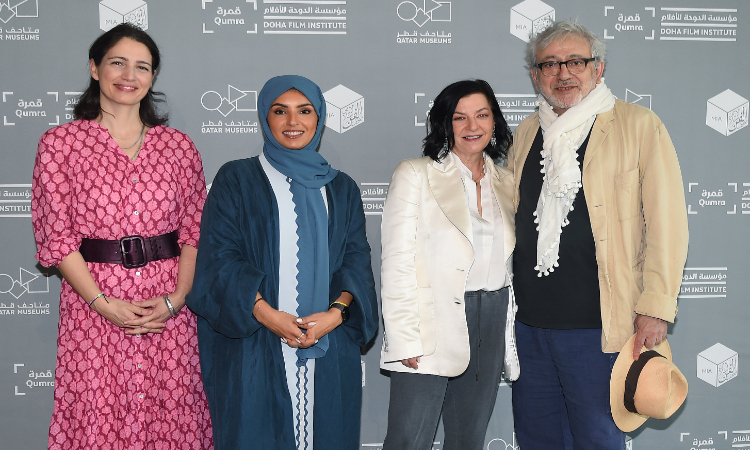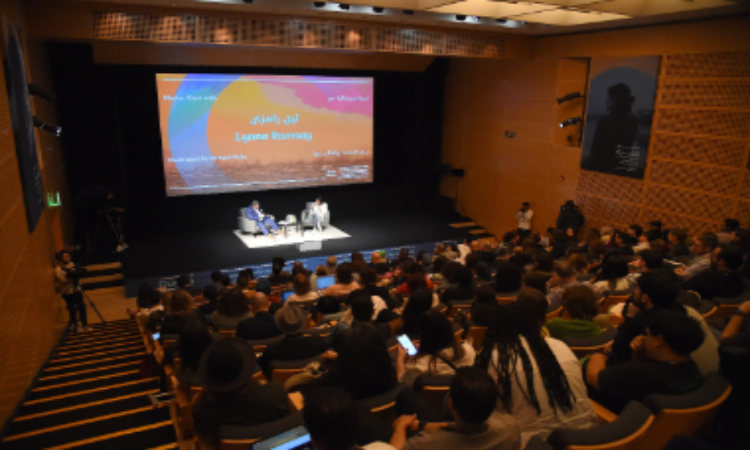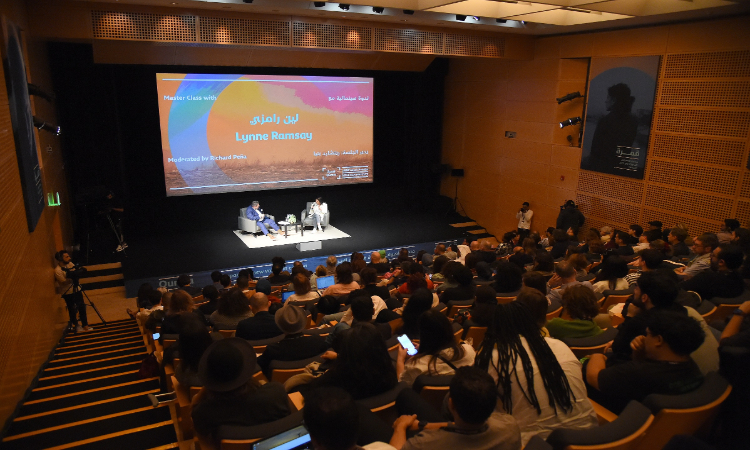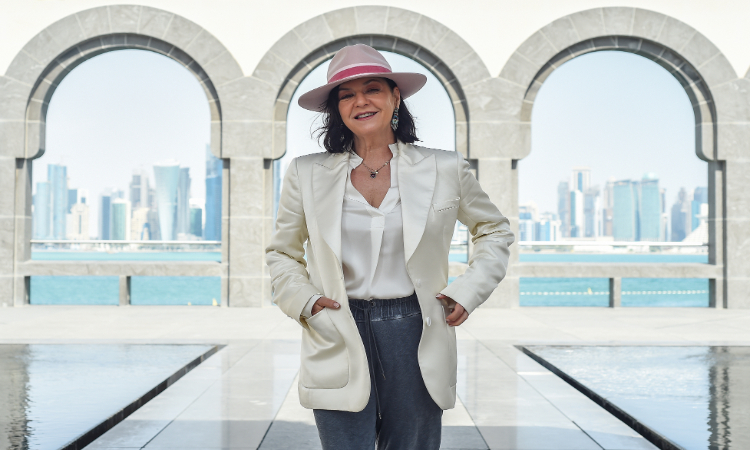Highly original even when she adapts literary works to cinema, Cannes and BAFTA-award winning director and Qumra Master Lynne Ramsay was effervescent and candid in her Masterclass at Qumra 2023, the Doha Film Institute’s annual talent incubator event for Arab and international cinema.
Attended by emerging filmmakers from across the world and moderated by Richard Peña, Professor of Film Studies at Columbia University, the masterclass navigated the cinematic universe of Ramsay, providing glimpses into the genius that makes her works extraordinary and resonate intensely with successive generations of audiences.
The takeaway for emerging filmmakers from the session? “Build trust” - with actors and the crew so that together they realise the director’s vision.
There was no prescriptive advice from Ramsay for the participants. Instead, they gained insight into a passionate and brilliant filmmaker’s mind, enabling them to put themselves in her shoes as directors and bring out the best from their team.
Ramsay says it is important never to be complacent when it comes to directing actors, and to keep exploring together by getting them into the project as early as possible. The next step is to agree how far they can go, and whether their actor impulses match her own vision and then stick to her guns. All the disagreements must be addressed in the first place, to work towards building mutual trust and rapport. “You must bring your enthusiasm to the film set, and when it’s fun, it works.”
Her own approach to cinema is guided by the exciting prospect of “meeting people from different backgrounds, with different emotions, and understanding what prism they are looking through, and in the process uncover some kind of emotion inside you too. You must be honest and open to seeing the world.”
Ramsay says films are like a crochet of humanity, and filmmaking is an endlessly fascinating job that enables directors to “uncover a person, moment, and time. I always feel like a student – and I always learn from my associations on a film. The key is to find a subject that hits your core.” She likes to smash up her themes a bit to challenge herself, which is her way of “uncovering some truth in the subjects” she presents in her films.
Born in Glasgow, Scotland, in a working-class family that loved films, Ramsay attended a film foundation course for young kids, where she stumbled into a dark room to herself, which she calls “the magic room” that enabled her to explore with abandon.
Her original passion was photography, but she went on to graduate in cinematography and directing from the National Film and Television School. She says she hated film school, where she felt she was “thrown into the deep end” as most of her peers were more experienced in film than her.
Her graduation film, Small Deaths won the 1996 Cannes Prix de Jury, and she continued to work on shorts, such as Gasman (1997), an intense film that too won at Cannes. Ramsay loves making short films for their ability to “speak volumes while saying little.” Shorts also enable her to experiment, and she sees it as a “fun form to play with.”
Ramsay’s first feature film, Ratcatcher screened in the Un Certain Regard at Cannes in 1999, stood out for its brilliant originality. She worked with non-professional actors for the film, and her cue to young filmmakers is “never to patronise [debutant non-professional actors] and to make the filmset a fun experience.”
Her subsequent films, including Morvern Callar (2002), based on a novel by Alan Warner; the intense We Need to Talk About Kevin (2011), based on Lionel Shriver's novel; and the ‘neo-noir crime thriller’ You Were Never Really Here, based on a novella by Jonathan Ames, all gained international acclaim.
But, in making these films, she again marked a departure from the norm. None of the films were seen by the writers before they were completed, with Ramsay never resorting to a ‘straight adaptation but always reinterpreting the characters’ in her inimitable way.
Describing her style of filmmaking as “very instinctive,” Ramsay says these films are “companion pieces” to the novels. She said she could make another movie altogether on ‘Kevin.’ She said she likes to review the works by upcoming filmmakers. “I am excited to be here in Qatar after being invited for many years. Qumra is really supportive of emerging filmmakers in a very special way.”
On final count, here was a masterclass that did not handhold young filmmakers and took them through a pre-ordained path but inspired them to discover the freedom in filmmaking – from ideation to the process to connecting with audiences with a new approach to storytelling.






